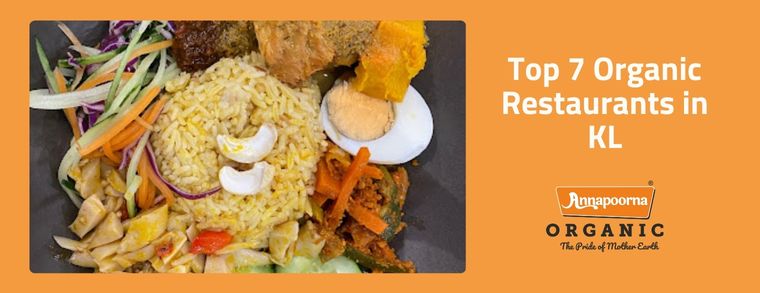Have you ever wondered what the difference between ghee and olive oil is? Well, here’s the scoop!
Both ghee and olive oil are healthy fats that help boost immunity and improve digestion. However, there are some differences between them.
Ghee is made by heating butter until all the water evaporates. It has a higher smoke point than olive oil, which means that it doesn’t burn easily.
The Basics
Have you ever wondered what the differences are between ghee and olive oils? Here’s the scoop!
Olive oil is extracted from olives, whereas ghee is made from cow’s milk. They both contain monounsaturated fatty acids, vitamin E, and antioxidants. But they differ in taste, smell, colour, and texture.
While olive oil is light yellow, ghee is golden brown. It has a stronger flavour than olive oil because it contains more fat. And unlike olive oil, ghee does not oxidize when exposed to air.
Ghee is usually stored at room temperature, whereas olive oil should be kept refrigerated.
Smoke Point of Olive Oil Vs. Ghee
The smoke point of olive oil is 375 degrees Fahrenheit, while the smoke point of ghee is 450 degrees. Ghee has a higher smoke point than olive oil due to its higher saturated fat content. For this reason, ghee is more suitable for frying and other high-temperature cooking methods.
Pros and Cons of Using Olive Oil Vs. Ghee in Cooking
Cooking with olive oil is a good option for those who are looking to use a healthier cooking method. Olive oil is rich in antioxidants, which can help prevent heart disease, Alzheimer’s disease and cancer. Ghee has a higher smoke point than olive oil and that makes it an excellent choice for frying and searing foods.
The main difference between the two oils is the flavour profile. Olive oil has a milder flavour than ghee, so it works better for dishes with delicate flavours. Ghee has a stronger flavour that might not work well with certain dishes like fish or vegetables.
The Benefits of Olive Oil Vs. The Benefits Of Ghee
The benefits of olive oil are that it is a great source of healthy fat and contains antioxidants such as vitamin E. Olive oil is also good for low-heat cooking, making it ideal for dishes like salads.
The benefits of ghee are that it is high in saturated fat and has a higher smoke point than olive oil, making it the best cooking fat to use for high heat cooking like stir-fries. Ghee also has a nutty flavour which enhances the taste of the food.
Varieties Of Olive Oils and Which Ones Are Healthier Than Others?
Olive oil is a healthy cooking fat that is good for the heart and brain.
Olive oil, which is derived from the fruit of the olive tree, can be used as a healthy cooking fat for home use. The healthiest types of olive oils are virgin and extra-virgin olive oils. These two types of olive oils are more expensive than other varieties but they have higher levels of antioxidants and lower levels of saturated fats. For example, extra-virgin olive oil has 2g per tablespoon while other varieties have 4g per tablespoon.
The healthiest cooking fats are monounsaturated fats, polyunsaturated fats, and omega 3 fatty acids. Olive oil has these three components in it so it is one of the healthiest cooking fats that you can use at home.
Which Ghee Healthier Than Others?
Ghee is a type of clarified butter that has had the milk solids and water removed. Ghee is often used in Indian cooking, but it can be used for other purposes.
Ghee is usually made from cow’s milk, but can also be made from other types of milk like goat or sheep. For example, organic ghee is made from organic milk and non-organic ghee is not.
Ghee has been shown to be healthier than butter because it contains less saturated fat and more unsaturated fat. It also contains some vitamins and minerals that are found in butter such as vitamin A, vitamin E, riboflavin, thiamin, niacin and folate. Ghee does not have lactose which causes digestive problems for people with lactose intolerance or who are vegan.
FAQs
What is healthier ghee or olive oil?
Both ghee and olive oil have health benefits and can be consumed in moderation as part of a healthy diet. However, olive oil is generally considered to be healthier due to its high levels of monounsaturated and polyunsaturated fats, which are known to be good for heart health.
Is ghee better than butter or olive oil?
Ghee and butter contain higher levels of saturated fat, which can increase the risk of heart disease when consumed in excess.
What is the healthiest oil for cooking?
The healthiest oil for cooking will vary depending on the cooking method and personal preferences, but options like avocado oil, coconut oil, and canola oil are generally considered healthy choices.
Is it OK to eat ghee every day?
Ghee is high in saturated fat and calories, so it is advisable to consume it in moderation as part of a balanced diet. People with specific dietary or health needs should consult a healthcare professional before including ghee in their regular diet.
How much olive oil is safe per day?
A safe amount of olive oil per day will vary depending on factors such as age, gender, and overall health, but consuming 1-2 tablespoons per day is generally considered safe for most adults.
When should I take olive oil daily?
Olive oil can be consumed daily as part of a healthy diet, but there is no specific time that is considered best for taking it. However, some people prefer to take olive oil first thing in the morning on an empty stomach.





